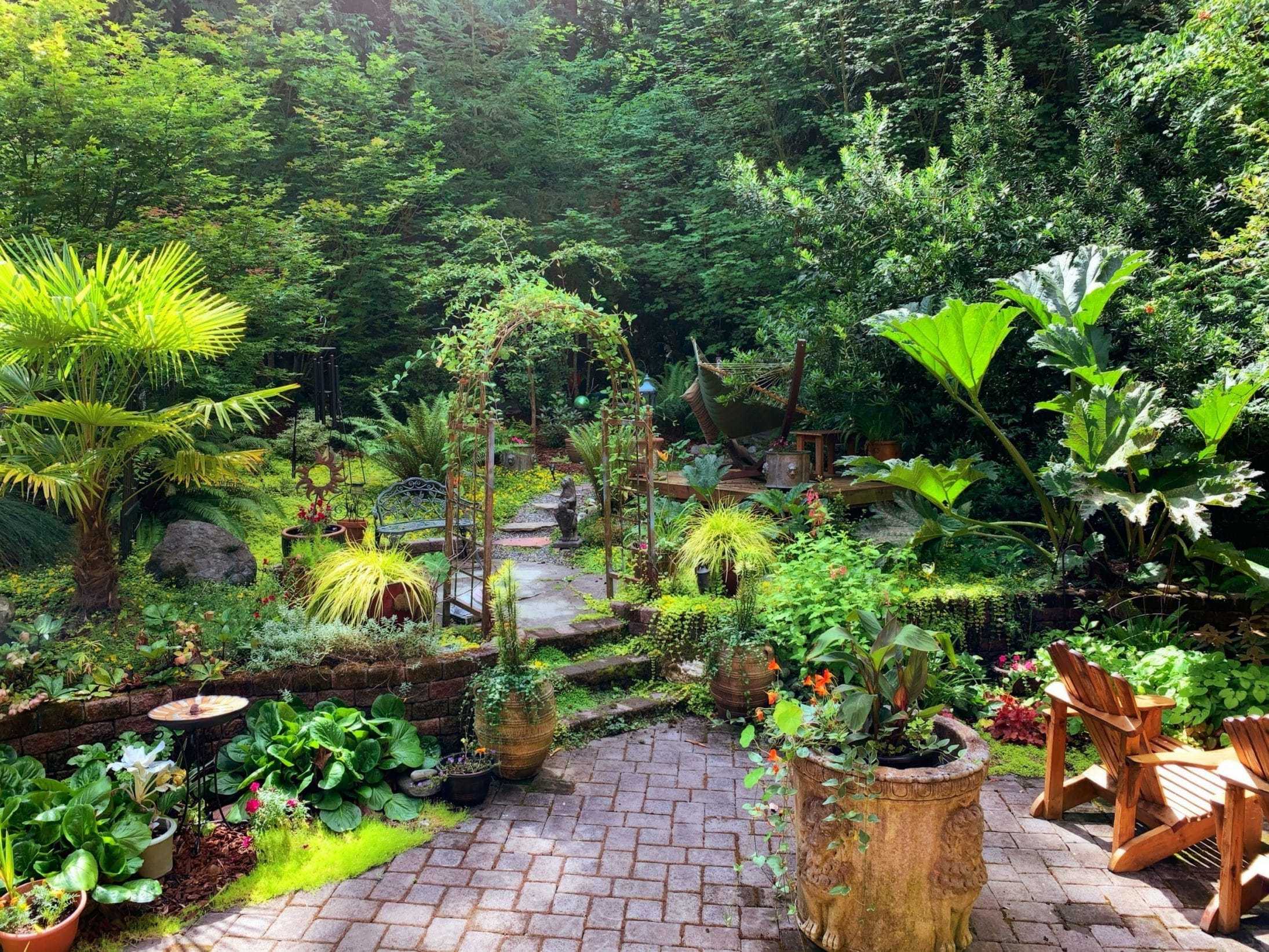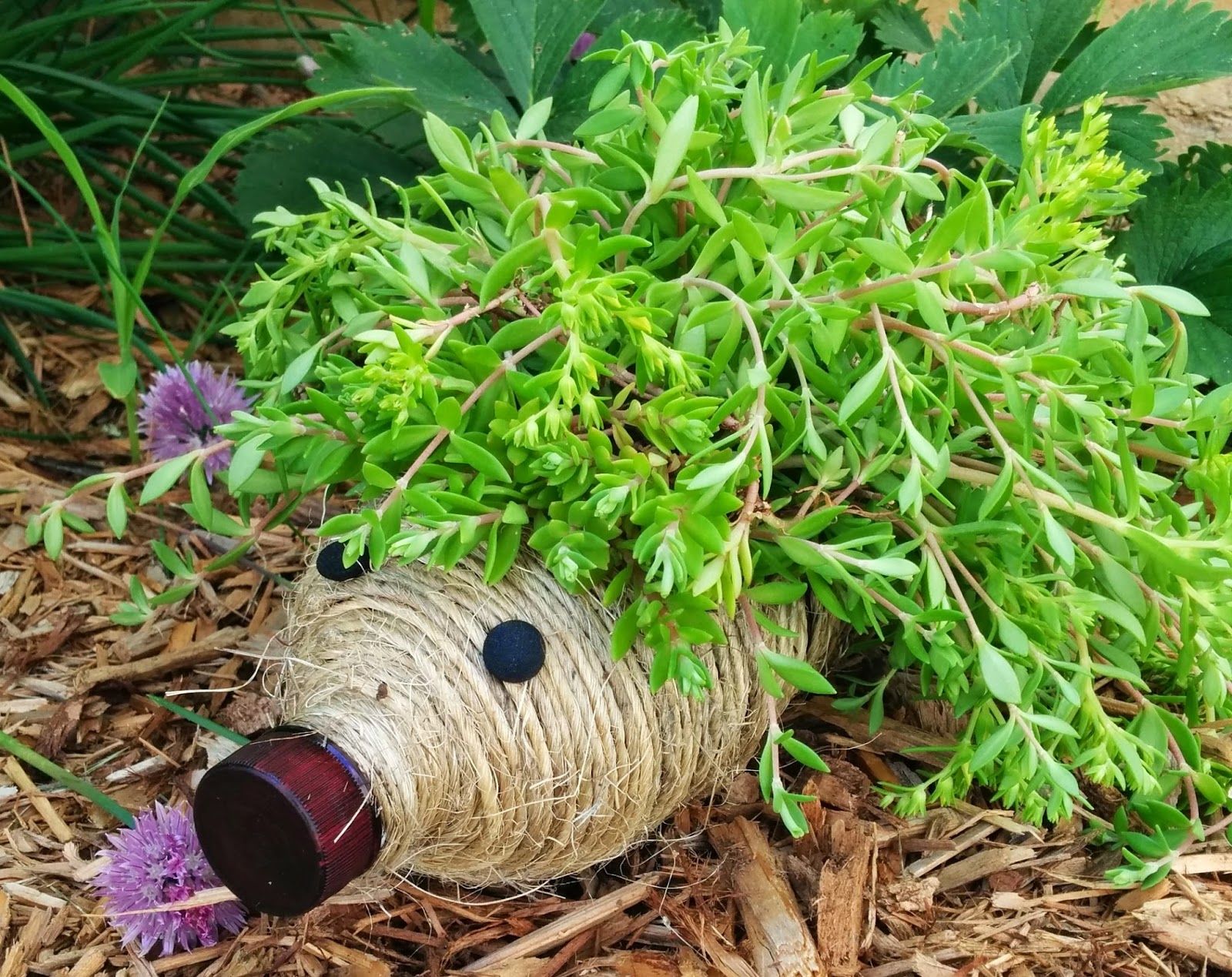Transform Your Garden: Sustainable Recycled Materials

Imagine transforming your garden into a lush, eco-friendly oasis without breaking the bank or harming the environment. Gardening with recycled materials for sustainability is not just a trend; it's a responsible and creative way to enhance your outdoor space. By repurposing everyday items, you can create a unique, beautiful garden that reflects your commitment to green living ideas. Let's dive into the world of sustainable gardening tips and DIY garden projects that will make your neighbors green with envy—in the best way possible!
The Benefits of Eco-Friendly Gardening
Eco-friendly gardening is more than just a hobby; it's a lifestyle that benefits both you and the planet. By using recycled garden materials, you reduce waste, save money, and contribute to a healthier environment. But why stop at just recycling? Sustainable gardening tips can help you create a thriving ecosystem in your backyard, attracting beneficial insects, birds, and even small animals. It's like turning your garden into a miniature nature reserve!
Reduce, Reuse, Recycle: The Three R's of Gardening
The three R's—reduce, reuse, recycle—are the cornerstones of eco-friendly gardening. By reducing the amount of new materials you buy, reusing items you already have, and recycling waste, you can create a garden that's both beautiful and sustainable. For example, instead of buying new planters, why not use old tires, pallets, or even plastic bottles? The possibilities are endless, and the results can be stunning.
Sustainable Gardening Tips: Where to Start
So, where do you begin? Start by looking around your home for items that can be repurposed. Old furniture, kitchenware, and even clothing can find new life in your garden. For instance, an old dresser can become a charming planter, while a worn-out pair of jeans can be turned into a sturdy pot holder. The key is to think outside the box and let your creativity guide you.
DIY Garden Projects: Transforming Trash into Treasure
Ready to get your hands dirty? Let's explore some DIY garden projects that will transform your outdoor space into a sustainable paradise.
Pallet Planters: Upcycling at Its Best
Pallets are versatile and readily available, making them perfect for DIY garden projects. With a little elbow grease and some creativity, you can turn a simple pallet into a stunning vertical garden. Just imagine a wall of lush greenery or vibrant flowers—all from repurposed wood! Check out this guide on creating pallet planters for step-by-step instructions.
Tire Gardens: From Rubber to Blooms
Old tires are often discarded, but they can be a goldmine for eco-friendly gardening. By stacking and painting tires, you can create unique and colorful planters that add a touch of whimsy to your garden. Plus, they're durable and can withstand the elements.

Bottle Planters: Green Living in a Bottle
Plastic bottles are a common household waste, but they can be transformed into cute and functional planters. Simply cut the bottles in half, poke some drainage holes, and fill them with soil and your favorite plants. It's a simple yet effective way to reduce plastic waste and add a touch of greenery to your space.
Sustainable Gardening Tips: Beyond the Basics
Once you've mastered the basics of gardening with recycled materials for sustainability, it's time to take your eco-friendly gardening to the next level. Here are some advanced tips to help you create a truly sustainable garden.
Composting: Nature's Recycling System
Composting is the ultimate in recycling. By turning kitchen scraps and yard waste into nutrient-rich compost, you can enrich your soil and reduce waste. It's like giving your garden a natural boost! If you're new to composting, this beginner's guide to composting from the EPA is a great resource.
Rainwater Harvesting: Sustainable Irrigation
Water is a precious resource, and sustainable gardening tips wouldn't be complete without mentioning rainwater harvesting. By collecting rainwater in barrels or cisterns, you can reduce your water bill and provide your plants with a natural source of hydration. It's a win-win!

Native Plants: Embracing Local Biodiversity
Choosing native plants for your garden is a smart and sustainable move. Native plants are adapted to your local climate and soil conditions, making them easier to care for and more resilient. Plus, they provide habitat and food for local wildlife. It's like creating a miniature ecosystem in your backyard!
Conclusion: Embrace the Beauty of Sustainable Gardening
Gardening with recycled materials for sustainability is more than just a trend; it's a way of life that benefits both you and the planet. By embracing eco-friendly gardening, you can transform your outdoor space into a lush, sustainable oasis. So, why not give it a try? Start with a simple DIY garden project, and watch as your garden blooms into a haven of green living ideas.
Ready to take the first step? Share your sustainable gardening tips and DIY projects with us in the comments below. Let's inspire each other to create beautiful, eco-friendly gardens that make a difference. Happy gardening!
FAQs
What are the best materials to recycle for gardening? Some of the best materials to recycle for gardening include pallets, old tires, plastic bottles, and even old furniture. These items are durable, readily available, and can be transformed into unique and functional garden features.
How can I start composting at home? Starting a compost pile at home is easy. Begin by collecting kitchen scraps and yard waste in a designated bin. Ensure a balance of green (nitrogen-rich) and brown (carbon-rich) materials. Turn the pile regularly to aerate it, and within a few months, you'll have nutrient-rich compost for your garden.
What are the benefits of rainwater harvesting? Rainwater harvesting helps conserve water, reduces your water bill, and provides your plants with a natural source of hydration. It's an eco-friendly way to keep your garden lush and healthy.
Why should I choose native plants for my garden? Native plants are adapted to your local climate and soil conditions, making them easier to care for and more resilient. They also provide habitat and food for local wildlife, contributing to biodiversity.
How can I involve my family in sustainable gardening? Involving your family in sustainable gardening can be a fun and educational experience. Assign age-appropriate tasks, such as planting seeds, watering plants, or helping with DIY projects. It's a great way to teach children about the environment and the importance of sustainability.
0 Response to "Transform Your Garden: Sustainable Recycled Materials"
Post a Comment